
Kód: 16348238
Language as Part of Intercultural Competence. Modern Languages and their Importance
Autor Markus Giesecke
Research Paper (postgraduate) from the year 2016 in the subject Communications - Intercultural Communication, grade: 2,3, University of applied Sciences Regensburg, course: Language and Intercultural Competence, language: English, ... celý popis
- Jazyk:
 Angličtina
Angličtina - Väzba: Brožovaná
- Počet strán: 36
Nakladateľ: Grin Publishing, 2017
- Viac informácií o knihe

Mohlo by sa vám tiež páčiť
-

Philosophy, Art, and Religion
88.21 € -15 % -

Non Posumus
3.57 € -

Di fronte al papa. La mia vita nella Chiesa da Pio XII a Francesco
16.37 € -

Solidarieta in Poesia
13.50 €
Darujte túto knihu ešte dnes
- Objednajte knihu a vyberte Zaslať ako darček.
- Obratom obdržíte darovací poukaz na knihu, ktorý môžete ihneď odovzdať obdarovanému.
- Knihu zašleme na adresu obdarovaného, o nič sa nestaráte.
Viac informácií o knihe Language as Part of Intercultural Competence. Modern Languages and their Importance
Nákupom získate 117 bodov
 Anotácia knihy
Anotácia knihy
Research Paper (postgraduate) from the year 2016 in the subject Communications - Intercultural Communication, grade: 2,3, University of applied Sciences Regensburg, course: Language and Intercultural Competence, language: English, abstract: Language, or communication, in a broader sense, is just a part of culture but a very important one because a shared language allows members of different cultures to express themselves and communicate with each other. Just as norms, expectations and behaviour, language vary across cultures, and it can change and evolve in the course of time for several reasons, e.g. new needs of the speakers of a language, technological progress, new products, just to mention a few. The origins of human language have been discussed as a topic for centuries and there is no consensus as to when it really began. Noam Chomsky, an American linguist and often referred to as the "father of modern linguistics", states that it has been an evolutionary process that still goes on today because he speaks of a so-called Language Faculty as a special component of the human brain which is specifically dedicated to language and required for language acquisition. Michael Corballis, emeritus professor at the Department of Psychology at the University of Auckland, is challenging Chomsky's theory as he argues in his book "The Truth about Language" that gesture was crucial to the development of speech instead of a single mutation in a single human. He states that we share that ability with other animals and his idea is supported by investigations of sign languages developed by deaf children who start to babble with their hands just as hearing children do with their mouths. Languages are constantly changing and this makes it difficult to count the exact number of living languages existing in the world today. Another problem could be the definition of a language because there is a difference between a language and a dialect, or between a language and a macrolanguage. For that reason, the International Organization for Standardization (ISO) has set international standards toward comprehensive coverage of languages and language groups in the ISO 639 series. The language codes are used in the Ethnologue, a catalog of living languages published by SIL International, which is the registration authority for ISO 639-3. According to Ethnologue (19th edition), there are 7,097 living languages in the world.
 Parametre knihy
Parametre knihy
Zaradenie knihy Knihy po anglicky Reference, information & interdisciplinary subjects Interdisciplinary studies Communication studies
47.48 €
- Celý názov: Language as Part of Intercultural Competence. Modern Languages and their Importance
- Autor: Markus Giesecke
- Jazyk:
 Angličtina
Angličtina - Väzba: Brožovaná
- Počet strán: 36
- EAN: 9783668432147
- ISBN: 3668432147
- ID: 16348238
- Nakladateľ: Grin Publishing
- Hmotnosť: 66 g
- Rozmery: 210 × 148 × 2 mm
- Rok vydania: 2017
Obľúbené z iného súdka
-
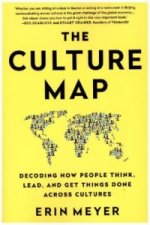
The Culture Map
16.77 € -23 % -

Nonviolent Communication: A Language of Life
19.84 € -6 % -

Communication Book
10.94 € -24 % -
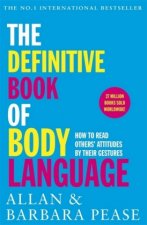
The Definitive Book of Body Language
11.35 € -24 % -
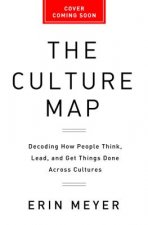
The Culture Map
24.35 € -22 % -

How to Read a Person Like a Book
20.97 € -

Fierce Conversations
16.57 € -23 % -

Hand
18.62 € -12 % -

Kittler and the Media
32.02 € -

Castells and the Media
25.78 € -

New Rules of Marketing & PR: How to Use Conten t Marketing, Podcasting, Social Media, AI, Live Vi deo, and Newsjacking to Reach Buyers Directly
27.52 € -6 % -

Revolutions in Communication
48.60 € -
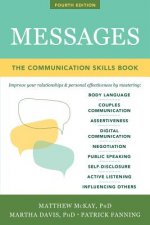
Messages
21.28 € -18 % -

Impossible to Ignore: Creating Memorable Content to Influence Decisions
23.63 € -19 % -

Nonviolent Commun Comp Workbook
18.82 € -19 % -

Introduction to Communication Studies
35.71 € -

Athanasius Kircher
59.86 € -

Social Media
60.99 € -

All About Language
36.12 € -

Leadership Without Easy Answers
50.55 € -13 % -

Viral Marketing
28.95 € -

Creative Industries
51.16 € -

Book Of Tells
14.42 € -23 % -
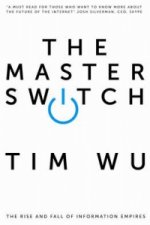
Master Switch
12.99 € -18 % -

Communication Power
27.21 € -

Decoding Advertisements
19.33 € -5 % -

Ideology and Modern Culture - Critical Social Theory in the Era of Mass Communication
23.94 € -35 % -

Gutenberg Galaxy
50.45 € -

Copycat Effect
20.15 € -13 % -

Qualitative Research Methods - Collecting Evidence Crafting Analysis, Communicating Impact 2e
79.82 € -

Selections from Science and Sanity, Second Edition
47.07 € -4 % -

On Dialogue
34.07 € -

Techniques of Close Reading
165.59 € -

Communication Essentials For Dummies
14.83 € -18 % -

Mediated Construction of Reality
27.62 € -

Cognitive Psychology of Mass Communication
105.92 € -

Body Language Bible
16.57 € -23 % -

Public Service Media in Europe: A Comparative Approach
68.87 € -

Interpersonal Communication Book, Global Edition
33.35 € -60 % -

Crowdsourcing
14.93 € -20 % -
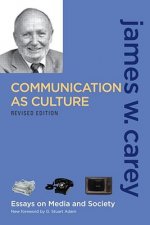
Communication as Culture, Revised Edition
71.53 € -

Social Media and Everyday Politics
31.72 € -
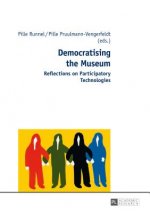
Democratising the Museum
119.43 € -

Technology, Society and Inequality
67.85 € -

Creating Intelligent Content with Lightweight DITA
71.63 € -

Health Writer's Handbook Second Edition
103.15 € -

Walking Your Talk
25.68 € -

Listening, Thinking, Being
48.40 € -

Becoming Digital
35.81 €
Osobný odber Bratislava a 2642 dalších
Copyright ©2008-24 najlacnejsie-knihy.sk Všetky práva vyhradenéSúkromieCookies



 21 miliónov titulov
21 miliónov titulov Vrátenie do mesiaca
Vrátenie do mesiaca 02/210 210 99 (8-15.30h)
02/210 210 99 (8-15.30h)